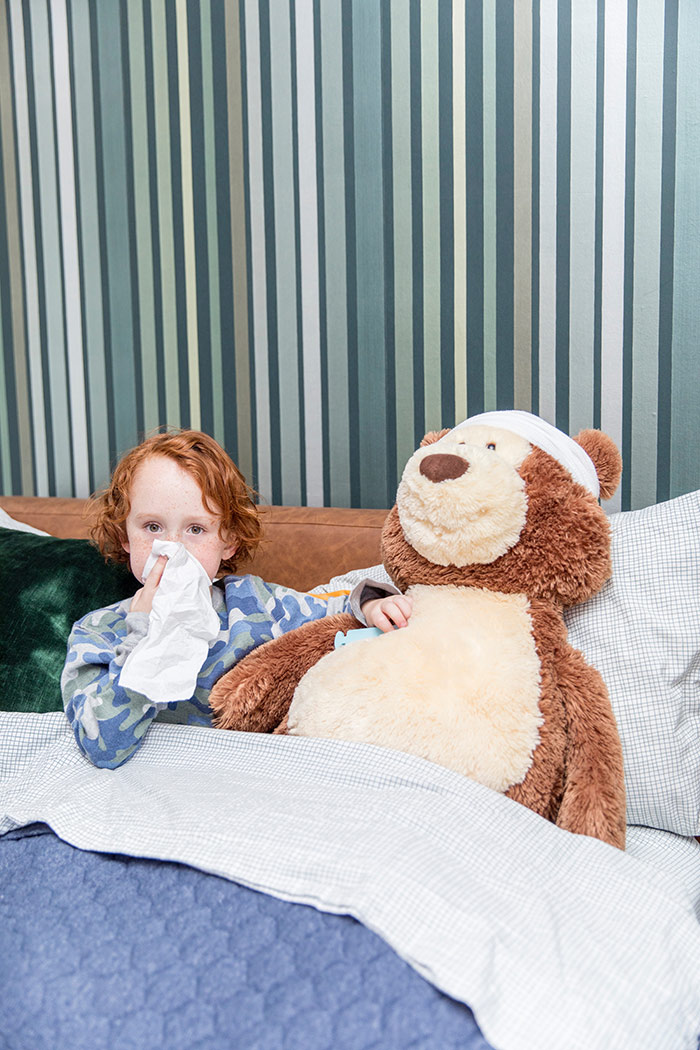
Influenza vs. COVID-19: A Pediatrician’s Breakdown
As we enter another flu season, parents have many fears and uncertainties during an already scary and unpredictable pandemic. Sometimes knowing exactly what to expect can ease your worries. So today, we want to go over some important information about this flu season, influenza symptoms in kids, and how to keep your kids safe by keeping their immune systems up-to-speed!
What You Need to Know About the Getting the Flu Shot and Influenza Symptoms in Kids
In this unprecedented time, it is more important than ever to prepare your family for the flu season. A fever or any other symptoms become even scarier with the thought of COVID-19 looming over us. So here are my answers to some common questions about this flu season and influenza symptoms in kids.
1. How can my child safely get a flu shot during a pandemic?
Many parents have concerns about going to their pediatrician’s office during a pandemic.
We are left asking ourselves, “Is it worth risking exposure to COVID-19 in order to protect my child against influenza?”
I am here to reassure you that there are many safe and effective ways to get your child’s flu vaccine. The first step is to call your child’s pediatrician to see what their safety protocols are and what steps they are taking to make sure your child is safe during this time.
My offices are providing a drive-through for flu shots or other nursing appointments. Precautions like these significantly decrease your risk of exposure.
2. What should I do to prepare my child for the flu season?
There are 3 important steps I think every parent should take before heading into flu season.
- Get a flu shot. And make sure everyone in your household gets one, too. The flu shot protects your child against the four most common strains of the influenza virus. Therefore, the vaccine significantly lowers your chance of getting the virus. In addition, the flu shot may decrease the severity of symptoms if your child does get sick with the flu.
- Make sure to have an action plan if your child spikes a fever. Speak with your pediatrician ahead of time so you know exactly what to do in order to ensure your child gets tested promptly.
- Speak to your child’s school about their protocols if your child develops symptoms such as a runny nose or low-grade fever. It is important to know how many days your child will be out of school with symptoms, so you can prepare for childcare, if necessary.
3. Is influenza or COVID-19 more dangerous for my child?
This question is a difficult one to answer, as we are still learning about COVID-19 and the complications that it causes in the pediatric population.
However, we do understand influenza and the dangers it can cause in the pediatric population.
Each year, millions of children contract influenza, resulting in thousands of hospitalizations and many deaths, especially in children under the age of 5.
An estimated 6-12% of children seek care for influenza-related illness each year. And 41% of children with influenza experience flu-related complication.
Common complications are pneumonia, seizures, other secondary bacterial infections such as sinusitis or otitis media, and exacerbation of existing respiratory issues such as asthma. Young children comprise the largest number of patients presenting for influenza-related care.
Recently, we see that young kids are more likely to spread influenza while older kids are more likely to spread COVID-19.
4. How do I know if my child has the flu?
As we move into flu season, this really is the million-dollar question.
The fall and winter months usually bring several respiratory viruses, making it very difficult to tell what illness your child actually has.
In general, the common cold tends to occur more gradually and doesn’t result in high fever or shortness of breath. Unfortunately, COVID-19 and influenza share many of the same symptoms. Hence why it is going to be more important than ever to have your child evaluated immediately if they develop fever.
Due to the pandemic, now is the time to be proactive with preventative measures. Although there are currently no treatments for COVID-19, the flu does have treatment options. Antiviral medication, which can reduce the risk of complications, works best if patients use it promptly.
CDC recommends prompt treatment for people who have flu infection or suspected flu infection and who are at high risk of serious flu complications, such children, people over the age of 65, and people with other underlying conditions, such as asthma, diabetes, obesity, or heart disease.
A delay in treatment increases the risk of serious influenza-related complications for your child and any other high-risk household members. It’s also important to think about your entire family unit when considering early intervention.
5. What should I do if my child spikes a fever or develops a cough?
Call your doctor immediately, and set up either a telemedicine appointment or an office visit. Whether your child has influenza, COVID-19, or another respiratory virus, early testing and treatment, if available, is important for your child, your whole family, and your community.
With children physically going back to school, early detection and contact tracing of COVID-19 is imperative and can save lives.
So What Are the Best Ways to Keep Kids Safe and Boost Their Immunity?
The best way to keep our children healthy and boost their immunity is to create healthy habits! Implementing a few simple rules can really help build immune systems and keep kids healthy through this pandemic.
1. A Good Night’s Sleep
Sleep is extremely important to maintaining good health and strong immunity. When our children are run down and tired, they become more vulnerable to illnesses. School aged children need up to 11 hours of sleep. Preschoolers need a total of 13 hours of sleep per day.
2. Teach Hand Washing
Research shows the most effective way to prevent the spread of illness is to wash our hands. Good hand washing habits start at home. Make sure your children wash their hands often and with soap. They need to understand the importance of clean hands before eating, after using the bathroom, and upon arriving home from an outing.
For kids, regularly washing their hands can be a fun and entertaining activity. And it provides a chance for them to take an active role in their own self-care. Children should wash their hands for 20 seconds, or about how long it takes to sing the “Happy Birthday” song.
3. Snacks with Immune Boosting Properties
Certain fruits and vegetables contain phytonutrients, such as vitamin C and carotenoids, which can boost your child’s immune system. Strawberries, blueberries, oranges, green beans, and carrots contain antioxidants and phytonutrients that can help increase your child’s production of infection-fighting white blood cells and interferons for fighting off illness.
4. Wear a Mask
Besides helping decrease the spread of both influenza and COVID-19, which occurs with aerosol transmission, masks also help prevent you from touching your nose and mouth.
On average, you touch your face 23 times in an hour!
If someone in the household has influenza, that person should wear a mask to prevent spreading the virus. If siblings share a bedroom and one gets ill, stop room sharing until the child is well.
Final Thoughts on Influenza Symptoms in Kids
You will always be your child’s biggest advocate! If you are worried that your child has symptoms of COVID-19 or you’re not sure what influenza symptoms in kids look like, your pediatrician is the perfect resource. Your pediatrician is always there to help and answer any questions or address any concerns you may have.
~Dr. Katie
I was compensated by Med-IQ through an educational grant from Genentech to write about the signs, symptoms, and treatments available for pediatric influenza. All opinions are my own.
As a pediatrician, I chose to partner with Med-IQ, an accredited medical education company that provides an exceptional educational experience for physicians, nurses, pharmacists, and other healthcare professionals. Through partnerships, like this one, with healthcare professionals, Med-IQ also seeks to guide the general population through obstacles of illness prevention and overall general wellness.
*Links to external sites are provided as a convenience and for informational purposes only. They are not intended and should not be construed as legal or medical advice, nor are they endorsements of any organization. Med-IQ bears no responsibility for the accuracy, legality, or content of any external site. Contact the external site for answers to questions regarding its content.
What You Can Do – Take a Survey!
Med-IQ is conducting an anonymous survey and would appreciate your input. The survey, which includes additional education on this topic, will take less than 15 minutes to complete. Survey responses are shared only in aggregate. Your responses to these survey questions will provide Med-IQ with important information about your experiences with pediatric influenza, which will help us develop future educational initiatives.
Once you’ve completed the survey, you will have the option of providing your email address to be entered into a drawing administered by SOMA Strategies to win 1 of 10 $100 VISA gift cards. If you choose to enter, your email address will be used only to randomly draw the winners and notify them of their prize and to send a follow-up survey as part of this same initiative.
*The survey contains links to external sites. Any such links are provided as a convenience and for educational purposes only. They are not intended as medical or legal advice, nor are they endorsements of any organization.




It is good to know what the differences are and to be prepared for cold and flu season. Thanks for sharing this info.
Great advice! We are actually adopting a newborn and had to get my toddler a flu shot before she is born. Her pediatrician was set up perfectly for covid safety!
A very informative post!!!
Great advice. I feel like this should be given out in all the schools right now. Thanks for making this information available!
I wouldn’t feel comfortable having my kid get the flu shot during COVID. Immunity boosters are the best way to help though!
This is a perfect guide for kids during this Covid situation. Thanks for sharing this, I will share your blog to my sister, she has a baby boy.
So many good tips for our climate right now. Great post!
I am saving this post because it has so much great advice for this season. We are working on boosting our immune systems and getting them prepared for flu season.
Thank you so much for this, it really helps parents decide for their children’s health!
Great information dr! It is really scary for patients these days. These tips are very helpful.
a very useful and informative post
Another tip I like is to try to get the early appointments. That way less people have been in the office, and theres less chance for droplets to be sitting on surfaces.